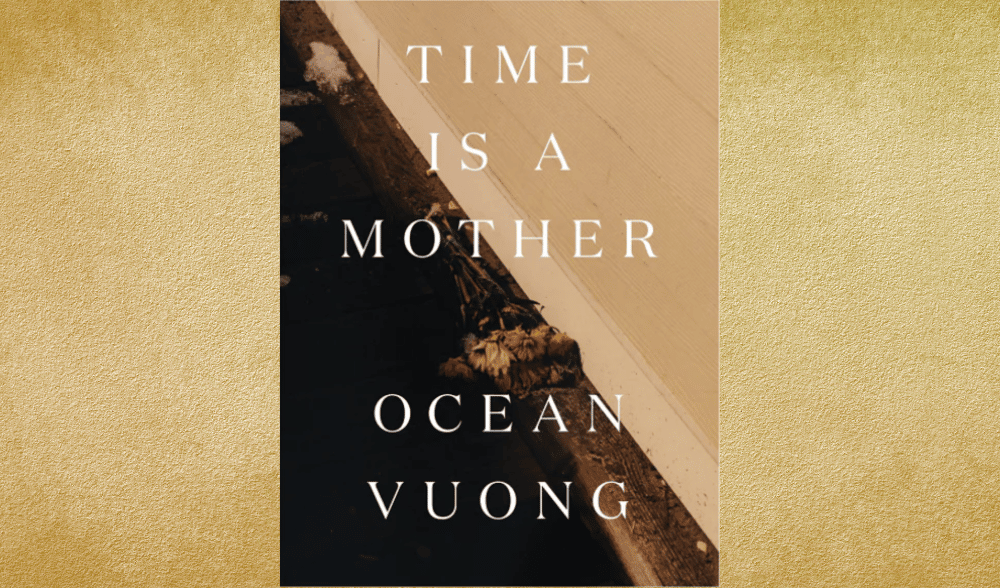ANGELINE KEK WRITES — Within Time is a Mother (2022), Ocean Vuong fashions a world so rich with polarities. No stone is left unturned. Vuong explores relationships in all their capacities: a person and their chosen loves, a person and society, and loving oneself.

Following the successes of Night Sky with Exit Wounds (2016) and On Earth We’re Briefly Gorgeous (2019), Vuong’s latest poetry collection, Time is a Mother, satisfies the craving for the poet’s singular voice. Each poem is simultaneously jagged and soft: the speaker finding beauty in death, coming into themself while making sense of their existence amid the callousness of history, and what humans have done to each other.
Rich with vulnerable ruminations, Time is a Mother reads like letters written but never sent, housing an openness so fearless it could only exist without an audience. Intimacy permeates the stanzas as the speaker swings on the pendulum of self-love and disdain, toeing between “ …you can love the world / until there’s nothing left to love/ but yourself. Then you can stop.” The poem continues, “…I stopped apologizing into visibility.” The crossroads between thinking the world is made for you and wanting to curl into yourself forever is finding acceptance within yourself and allowing yourself to take up space: “… I think / I’m doing it right / now finally maybe / I’m winning even / if it just looks like / my fingers are shaking.” What Vuong means is we must celebrate the little wins as they add up.
Moving out of individuality, the speaker muses upon the “self” as a product of other people, history, and the transiency of existence. Death presents a poignant escape from our capitalist system. “Can you believe my uncle worked at the Colt factory for / fifteen years only to use a belt at the end? … I know the room you’ve been crying in / is called America. / I know the door is not invented yet.” By braiding in humor in contrast to the revolting state of our money-hungry society, the speaker succeeds in communicating something multilayered. Voung teaches us that when there is no door, the human instinct is to use humor to carve a way out, even if only in the mind.
In parallel, the speaker peruses death in a personal sense while processing their mother’s passing. “Reader are you my mom yet / I cannot find her without you this / place I’ve made.” As long as her memory is conjured up in the reader’s imagination, she will not have truly died. Through writing, the speaker finds hope: “reader I’ve / plagiarized my life / to give you the best / of me … these / corpses I lay / side by side on / the page to tell you / our present tense / was not too late.” The stunning collection ends on a note of bittersweet idealism, arguably one of the only ways to make sense of life.

Angeline Kek is a book reviewer and contributing staff writer for Asia Media International. As a recent graduate from LMU, she majored in English with a concentration in poetry and creative writing. She is interested in poetry and writings that are honest against all instincts.
Edited by book review editor-in-chief, Ella Kelleher.

